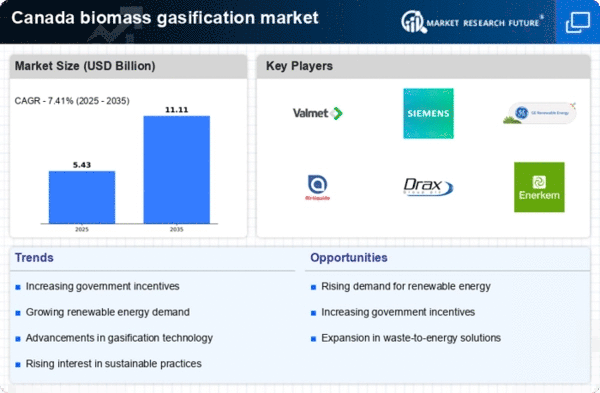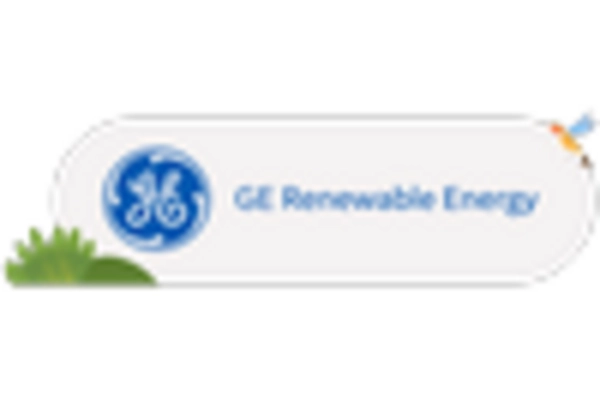Rising Energy Costs
The increasing costs of traditional energy sources in Canada are driving interest in alternative solutions, such as the biomass gasification market. As fossil fuel prices fluctuate, consumers and industries are seeking more stable and sustainable energy options. Biomass gasification offers a potential solution by converting organic materials into syngas, which can be used for electricity generation or as a fuel source. This shift is particularly relevant in regions where energy prices have risen by over 20% in recent years. The biomass gasification market is positioned to benefit from this trend, as it provides a cost-effective alternative that can help mitigate the impact of rising energy expenses.
Environmental Regulations
Stringent environmental regulations in Canada are increasingly influencing the biomass gasification market. The government has implemented policies aimed at reducing greenhouse gas emissions and promoting cleaner energy sources. As industries face pressure to comply with these regulations, many are turning to biomass gasification as a viable option. This technology not only reduces waste but also contributes to lower emissions compared to traditional fossil fuels. The biomass gasification market is likely to see growth as companies invest in cleaner technologies to meet regulatory requirements, potentially leading to a market expansion of over 15% in the coming years.
Technological Innovations
Technological innovations in biomass gasification processes are enhancing efficiency and reducing costs, thereby stimulating market growth. Advances in gasification technologies, such as improved feedstock handling and gas cleaning systems, are making biomass gasification more competitive with conventional energy sources. These innovations are crucial for the biomass gasification market, as they enable higher conversion efficiencies and lower operational costs. As technology continues to evolve, it is anticipated that the market will experience a surge in adoption, with projections indicating a potential growth rate of 12% over the next five years.
Waste Management Solutions
The need for effective waste management solutions is a significant driver for the biomass gasification market in Canada. With increasing waste generation, municipalities and industries are seeking sustainable methods to manage organic waste. Biomass gasification provides a dual benefit: it reduces landfill use while generating energy. This approach aligns with Canada's goals of promoting circular economy practices. The biomass gasification market is expected to grow as more facilities adopt this technology to convert waste into valuable energy, potentially increasing market size by 10% annually as communities prioritize sustainable waste management.
Public Awareness and Support
Growing public awareness regarding climate change and the benefits of renewable energy sources is fostering support for the biomass gasification market. Canadians are increasingly advocating for sustainable energy solutions, which has led to greater acceptance of biomass gasification as a clean energy alternative. This shift in public perception is encouraging both government and private sector investments in biomass technologies. As awareness campaigns and educational initiatives continue to proliferate, the biomass gasification market is likely to see increased demand, potentially leading to a market growth of 8% as consumers seek environmentally friendly energy options.
















